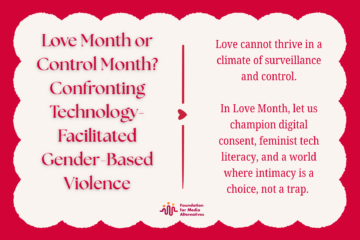Love Month or Control Month? Confronting Technology-Facilitated Gender-Based Violence
Love Month or Control Month? Confronting Technology-Facilitated Gender-Based Violence February is the month of hearts, chocolates, and grand gestures of love. But for too many women and marginalized genders, it is also a stark reminder that love and intimacy in the digital age are not always safe. Behind the filtered Read more







